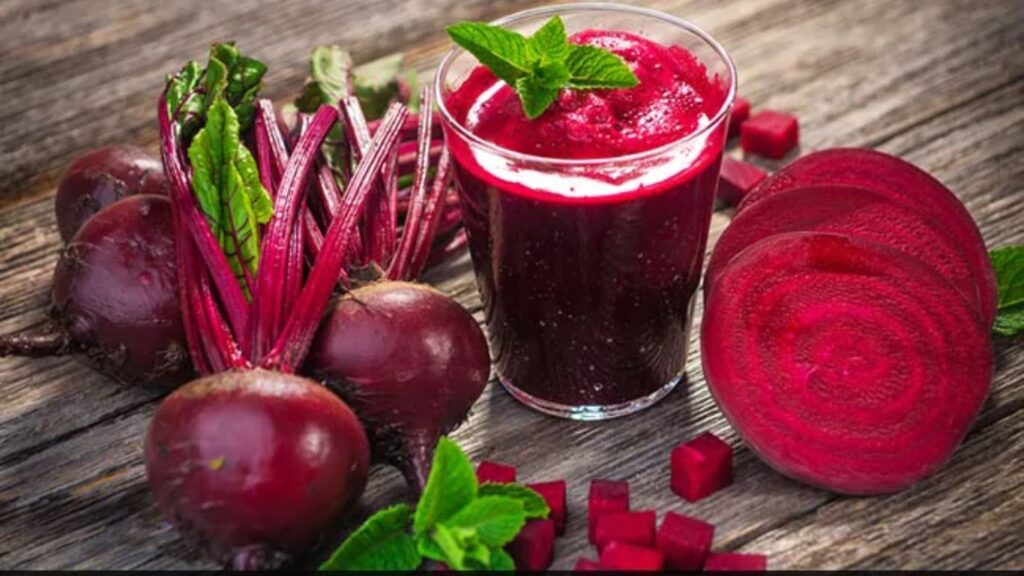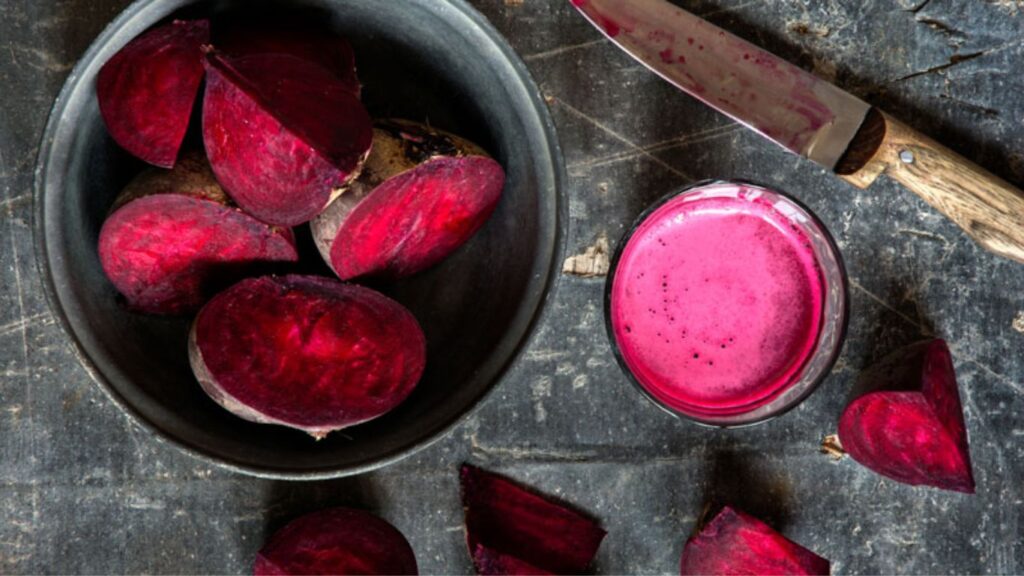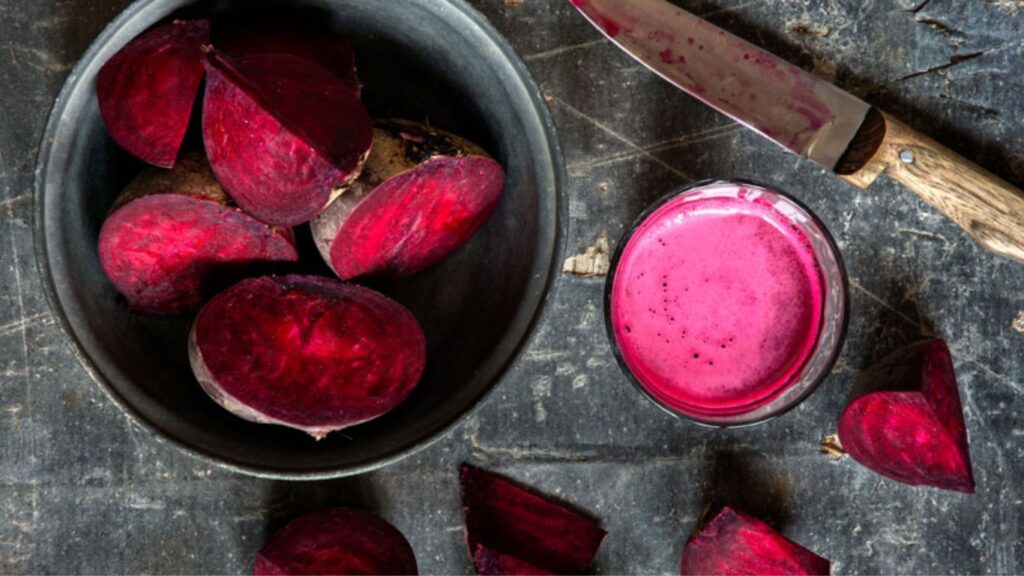Beetroot, the taproot portion of the beet plant, has been cultivated since ancient times for its numerous culinary, health, and medicinal properties. Known for its vibrant crimson hue, this beetroot vegetable is an excellent source of fiber, vitamins, minerals, and antioxidants, making it a staple in a health-conscious diet. Beetroot’s earthy flavor and natural sweetness lend themselves to a variety of dishes, from salads and soups to juices and desserts. It can be consumed raw, cooked, or pickled.
In addition to its dietary benefits, beetroot has been associated with improved blood flow, lower blood pressure, and enhanced athletic performance due to its nitrate content. The greens of the beet, which are also edible, are rich in nutrients and often used in similar ways to spinach. Beetroot’s versatility and health benefits have cemented its status as a cherished ingredient in kitchens and cultures worldwide.
Originating from the shores of the Mediterranean, beetroot has been consumed since ancient times, not just for its appealing taste but also for its medicinal properties. Beets are from the Chenopodiaceous family, closely related to spinach and quinoa, and are available in various types, from the common red beet to golden beets and even candy-striped Chioggia beets.
Nutritional Profile of Beetroot
Before delving into the specific health benefits, let’s look at what makes beets such a nutritious option. A single cup of raw beets provides you with a good dose of fiber, folate (vitamin B9), manganese, potassium, iron, and vitamin C. They are low in calories and fat, making them a perfect addition to a balanced diet.
1. Cardiovascular Health
Beetroot has gained considerable attention for its cardiovascular benefits, primarily due to its high nitrate content. These naturally occurring nitrates are converted into nitric oxide in the body, which helps dilate blood vessels, thereby improving blood flow and reducing blood pressure. Studies have suggested that the consumption of beetroot juice can lead to acute improvements in blood pressure levels, a key risk factor for heart disease.
Moreover, the presence of antioxidants like betalains helps in reducing oxidation of LDL cholesterol, which is implicated in the development of atherosclerosis. The fiber in beetroot further supports cardiovascular health by improving cholesterol levels and supporting healthy gut function, which is linked to reduced heart disease risk. Regular inclusion of beetroot in one’s diet could, therefore, contribute to the prevention of cardiovascular conditions such as hypertension and heart attacks, making it a heart-friendly food. However, for individuals with conditions requiring the monitoring of nitrate intake, such as those with kidney disease, consulting with a healthcare provider is advisable.

2. Enhanced Athletic Performance
Beetroot is acclaimed in the athletic community for its potential to enhance performance, an effect attributed to its high nitrate content. When consumed, these nitrates convert to nitric oxide, which facilitates vasodilation—expanding blood vessels, thus improving blood flow and reducing the amount of oxygen muscles need during activity. This process can significantly enhance endurance and reduce fatigue. Studies have demonstrated that athletes who drink beetroot juice before engaging in cardio-intensive sports can improve their oxygen uptake and extend the time to exhaustion, allowing for longer, more productive training sessions.
The vegetable’s contribution to faster recovery times post-exercise is also noted, as the antioxidants in beetroot reduce muscle inflammation and aid in the repair process. For athletes looking to naturally boost their performance, incorporating beetroot into their pre-workout routine may offer a legal and safe ergogenic benefit. However, the degree of benefit can vary from person to person, and optimal outcomes often come from consistent, dietary integration rather than one-off consumption.
3. Anti-Inflammatory Properties
Beetroot is renowned for its anti-inflammatory properties, which are largely attributed to the presence of betalains—pigments that give the vegetable its vivid color. Betalains have been shown to inhibit specific signaling pathways that play a role in inflammatory processes, providing relief and potential therapeutic benefits for conditions characterized by chronic inflammation. The fiber in beetroot further assists in reducing inflammation by improving gut health and thereby potentially lowering systemic inflammation.
Furthermore, the plant is rich in other compounds such as folate and magnesium, which are also associated with anti-inflammatory effects. Regular consumption of beetroot, whether through whole food forms or juice, can contribute to the body’s defense against inflammation-related conditions like heart disease, certain cancers, and obesity. It is a natural and functional food that supports the body’s anti-inflammatory mechanisms, though individuals with conditions that require monitoring of dietary intake, such as those prone to kidney stones, should seek advice from health professionals.
4. Cancer Prevention
Beetroot has piqued the interest of the scientific community for its potential role in cancer prevention. This interest is primarily centered around the betalains it contains, which are phytonutrients responsible for its deep red pigment. Betalains are potent antioxidants with properties that may help protect cells from oxidative stress and the DNA damage that can lead to cancer. In vitro studies suggest that these compounds can reduce the proliferation of several types of cancer cells, including those of the breast and prostate.
Furthermore, the fiber in beetroot contributes to a healthy gut microbiome, which is crucial for maintaining a strong immune system and potentially reducing cancer risk. While the evidence is promising, it is also in its nascent stages, and most of the research has been limited to laboratory and animal studies. As such, while beetroot forms a nutritious part of a diet that may be associated with a lower risk of cancer, it is not a standalone cure or preventive measure against cancer.

5. Digestive Health
Beetroot is a boon to digestive health due to its high fiber content. This fiber passes through the intestines undigested, adding bulk to stool and promoting regular bowel movements, which is crucial for preventing constipation and maintaining a healthy digestive tract. The fiber in beetroot also acts as a prebiotic, feeding beneficial gut bacteria, which is essential for a balanced microbiome. A healthy microbiome not only aids digestion but also supports immune function and may even impact mood and mental health.
Additionally, the betaine found in beetroot helps to protect the digestive system by maintaining stomach acid levels, which is important for the breakdown of foods and the absorption of nutrients. By improving digestion and promoting gut health, beetroot can contribute to overall well-being. Its role in supporting the body’s detoxification processes further underscores its benefits for digestive health, making it a valuable addition to a diet aimed at maintaining or improving gastrointestinal function.
6. Brain Health
Beetroot could be considered brain food, courtesy of its high nitrate content that, when converted to nitric oxide, enhances cerebral blood flow. This aspect is particularly beneficial for brain health, as it can contribute to improved cognitive functioning. Enhanced blood flow to the brain is associated with better oxygenation and nutrient delivery, which can bolster brain performance, especially in the frontal lobes that are responsible for executive functions such as memory, decision-making, and focus.
There is growing interest in the potential of beetroot to assist in the management of neurodegenerative diseases like dementia. Studies have indicated that the increased blood flow from nitrate-rich foods like beetroot may support the brain’s resilience against age-related cognitive declines. Moreover, the antioxidants in beetroot combat oxidative stress, which can damage brain cells over time. Thus, incorporating beetroot into one’s diet could be a simple strategy to support brain health and protect cognitive integrity as one ages.
7. Support for Liver Health
Beetroot is lauded for its detoxification support and potential liver health benefits. The vegetable contains betaine, a compound that aids the liver’s processing of fats, preventing the accumulation of fatty tissues in the liver—a condition known as non-alcoholic fatty liver disease (NAFLD). Betaine also serves as a hepatoprotective agent, meaning it helps protect the liver from toxins. The presence of antioxidants like glutathione in beetroot further bolsters liver health, as it is crucial for detoxifying harmful substances and for the liver’s overall function.
Moreover, beetroot is rich in pectin, a type of fiber known to help flush out toxins from the body, ensuring they do not get reabsorbed. The flavonoids and betalains in beetroot also have anti-inflammatory properties that can alleviate stress on the liver. Together, these properties make beetroot a supportive food for liver health, potentially enhancing the organ’s ability to regenerate and perform its detoxifying roles effectively.
8. Managing Diabetes
Beetroot may hold beneficial properties for managing diabetes. Its natural compounds can influence blood glucose levels and insulin sensitivity. The fiber in beetroot slows down the rate at which glucose is released into the bloodstream, helping to maintain steady blood sugar levels and reduce glycemic spikes after meals. This can be particularly beneficial for individuals with type 2 diabetes.
Additionally, the antioxidant alpha-lipoic acid found in beetroot has been shown to lower glucose levels, increase insulin sensitivity, and prevent oxidative stress-induced changes in patients with diabetes. Although beetroot has a medium Glycemic Index (GI), the actual glycemic load (GL) per serving is low; hence, when consumed in moderation, it doesn’t cause major spikes in blood sugar levels.
It’s important for those managing diabetes to consider the portion size and preparation of beetroot, as juicing can concentrate sugars. Including beetroot as part of a balanced diet, with its whole fiber content intact, could thus play a supportive role in diabetes management.
9. Enhancing Weight Loss

Beetroot can be a valuable addition to a weight loss diet due to its nutritional profile and low calorie count. High in fiber, beetroot aids in creating a sense of fullness, reducing overall calorie intake by curtailing the appetite. The fiber also helps regulate the digestive system, which is key for efficient metabolism and weight management.
Furthermore, its high water content boosts hydration, which is crucial for burning fat and maintaining metabolic processes. Beetroot’s natural sweetness can also satisfy sugar cravings without the high calories associated with sweet processed foods. The nitrates found in beetroot may contribute to improved muscle efficiency and performance during physical activities, potentially increasing the amount of calories burned during exercise.
While beetroot alone won’t lead to weight loss, when it is incorporated into a balanced diet and healthy lifestyle, its properties can support weight management goals. Its nutrient density provides vital vitamins and minerals without adding excess calories, making it an excellent choice for those looking to lose weight.
10. Improving Sexual Health
Beetroot may have a positive impact on sexual health, largely due to its high content of dietary nitrates, which are converted into nitric oxide (NO) in the body. Nitric oxide is a compound that naturally relaxes and dilates blood vessels, improving blood flow throughout the body, including the genital areas. Enhanced blood flow is critical for erectile function in men and may enhance arousal in women, suggesting a potential role for beetroot in supporting sexual health and treating conditions like erectile dysfunction.
The mineral content in beetroot, such as magnesium and iron, also contributes to a healthy blood supply, which is essential for arousal and sexual stamina. Additionally, the antioxidants in beetroot help protect the reproductive system from oxidative stress, thereby maintaining its proper function.
While beetroot is not a cure for sexual health issues, its inclusion in the diet can contribute to overall vascular health, which is important for healthy sexual functioning.
Potential Risks and Considerations
While beets offer a myriad of health benefits, they also contain oxalates, which can contribute to kidney stone formation in susceptible individuals. Those with kidney problems should consult their healthcare provider before adding beets to their diet.
How to Incorporate Beets Into Your Diet
Beets are versatile and can be consumed raw, cooked, or in juice form. Raw beets retain most of their nutrients and can be grated into salads or sliced into veggie chips. Roasting beets can enhance their natural sweetness, making them a delicious side dish. Beet juice is another popular way to consume this vegetable, particularly for those looking to boost athletic performance.

Conclusion
Beetroot is a versatile, delicious, and powerful vegetable with benefits ranging from improved cardiovascular health and athletic performance to potential cancer-fighting properties. Whether you’re looking to boost your heart health, enhance your workouts, or simply add more nutrients to your diet, beetroot is a worthy contender in your vegetable arsenal.
Incorporating beetroot into your meals is easy, and the variety of ways to enjoy it means you’ll never grow tired of this brightly colored superfood. So next time you’re at the grocery store, consider adding some beets to your cart — your body will thank you for it.
Read more: Prebiotics and Probiotics: The Dynamic Duo for Achieving a Healthy Physique
